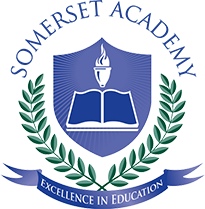Cookie Policy
This website uses cookies. By continuing to use this site, you accept our use of cookies.


ACADEMIC HONESTY: Somerset Career Academy encourages each of its students to actively participate in the learning process. It is the school's expectation that students, over time, will be increasingly able to learn on their own and produce work that shows their integrity and their efforts. This development requires special care in maintaining an attitude of academic honesty through the student's four years at SCA.
The academically honest student:
Prepares thoroughly for all academic assignments
Tries his best at all assigned tasks
Takes ownership of his talents and abilities
Seeks appropriate help when he fails to understand
Makes proper use of the efforts and thoughts of others
Takes pride in each assignment as an example of his own skill and effort
To recognize the talents and efforts of each student and to promote the fundamental principles of mutual trust and respect, SCA encourages student effort and insists on academic honesty. Among the types of academic dishonesty not tolerated at SCA are the following:
Cheating - student use, or attempted use, of unauthorized materials in any academic situation or solicitation of someone else to do work for which he is responsible. Examples of cheating or violation of testing protocol include but are not limited to:
Using open notebooks, texts, or other course materials without permission
Exchanging answers with another student on any graded assignment
Copying another's test answers with or without his permission
Possessing "cheat notes"
Demonstrating an intent to cheat
Providing answers for any assignment
Students must comply with the testing procedures specified by the teacher. Violations of testing procedures will be considered under the cheating policy but may not be given the same consequence.
Fabrication - inventing or falsifying information.
Examples include:
Inventing lab data
Citing sources not used
Copying - examples include:
Copying homework or papers from another person or allowing someone to copy homework or papers
Acquiring answers from the internet or other electronic sources and purporting them as one’s own
Using teacher edition texts or teacher answer keys or test copies
Deception/Misrepresentation - lying about student work or academic records. Examples include:
Forging a teacher's or parent’s signature on any document
Taking credit for group work without having contributed as required
Electronic Dishonesty - using network access inappropriately. Examples include:
Using another's computer account
Invading another's files
Using material from another's stored files (e.g. network storage, flash drive)
Damaging or deleting another’s computer files
Plagiarism - Plagiarism is the use, intentional or not, of the writing or ideas of others and representing them as one's own. Text manipulation is plagiarism. Paraphrasing the ideas of someone else is plagiarism. Credit must be given to all outside sources, including, but not limited to: research materials, online databases, internet sources, encyclopedias, charts, graphs, pictures, quotations and paraphrasing and summaries of another's written or spoken words. Plagiarism, regardless of intent or degree or amount, is theft and violates academic integrity. Students uncertain about what material to cite should consult teachers for guidance and advice.
Penalties for Violations - Because academic honesty serves as a measure of personal integrity and provides a foundation for the academic strength of Somerset Career Academy, any violation of it is considered a serious offense. Such offenses are cumulative. A student remains responsible for all violations of academic honesty committed at any time during his SCA career.
First time violators:
Zero percent (0%) on the work/assignment in question
Automatic 3 day of Saturday School (9:30-12:30 PM)
Mandatory lunch plagiarism bootcamp
Automatic academic probation
Parent Notification
Second time violators:
Suspension and/or possible dismissal from Somerset Career Academy